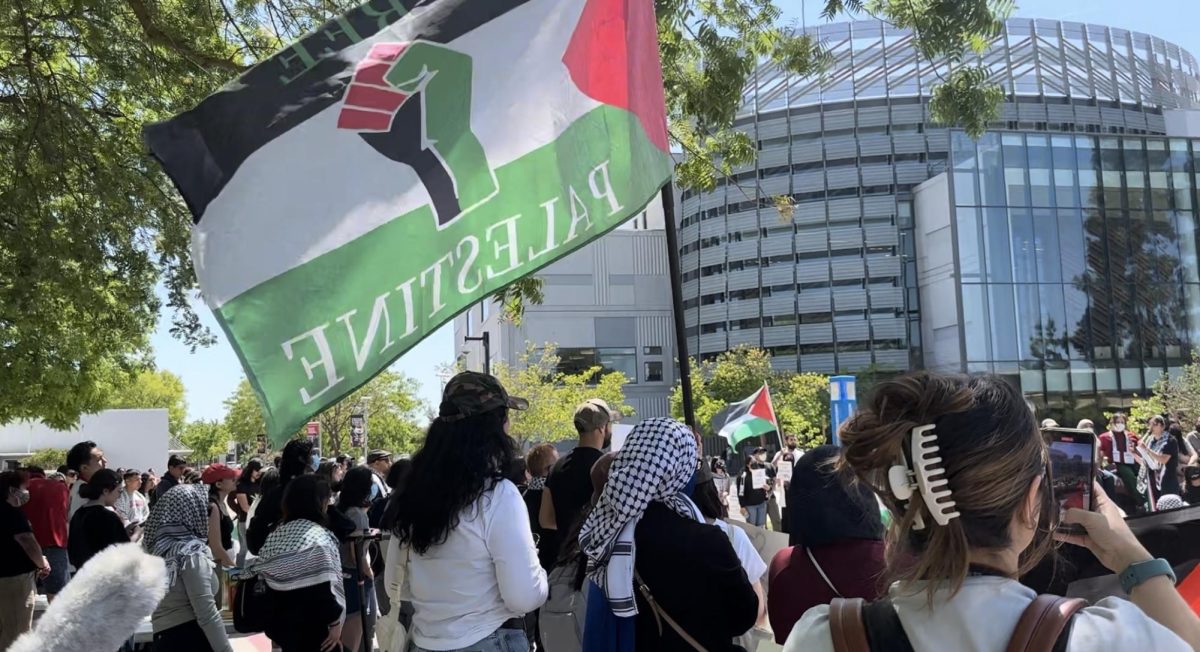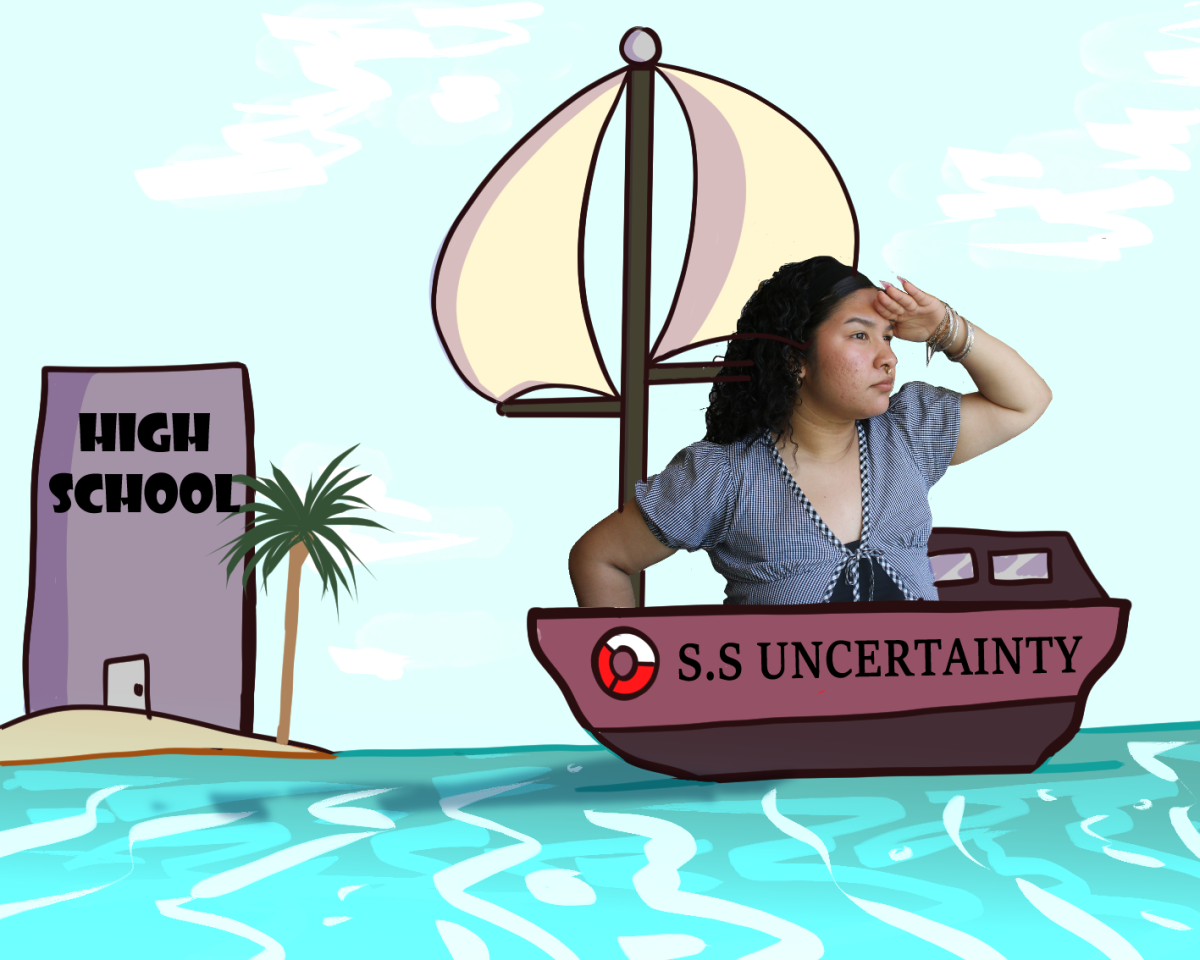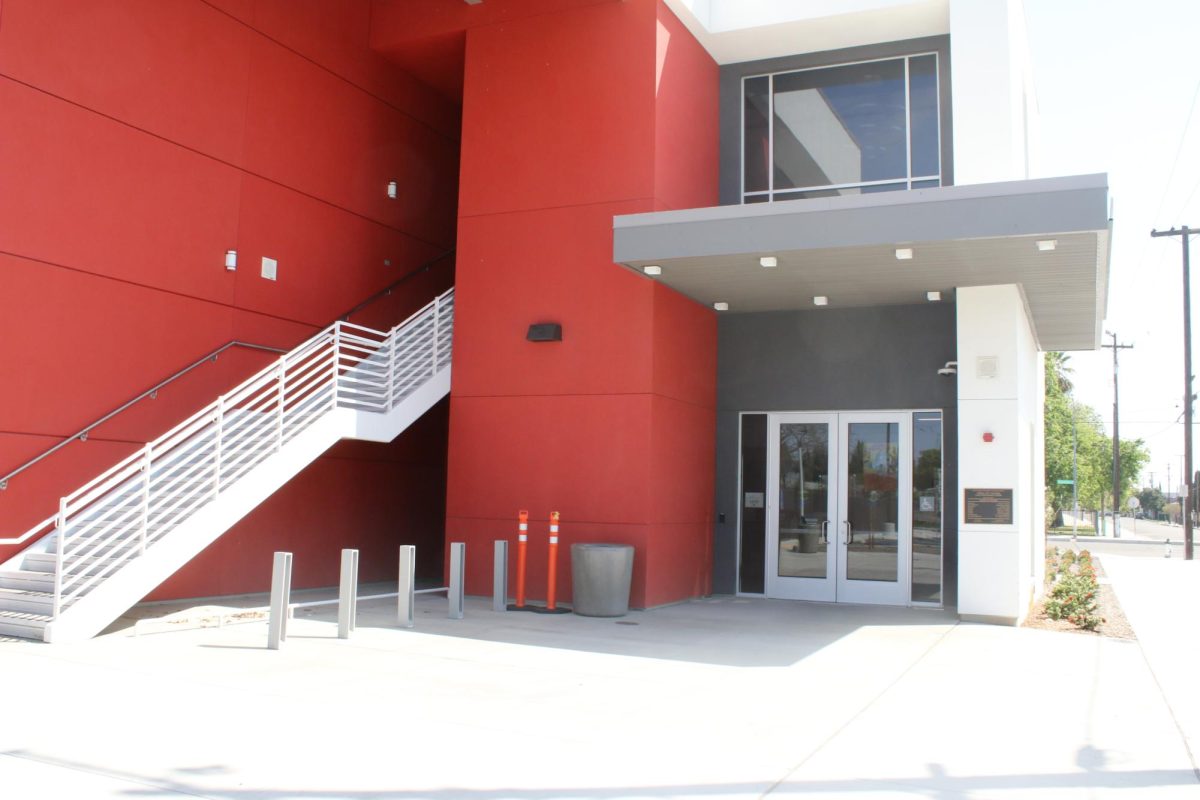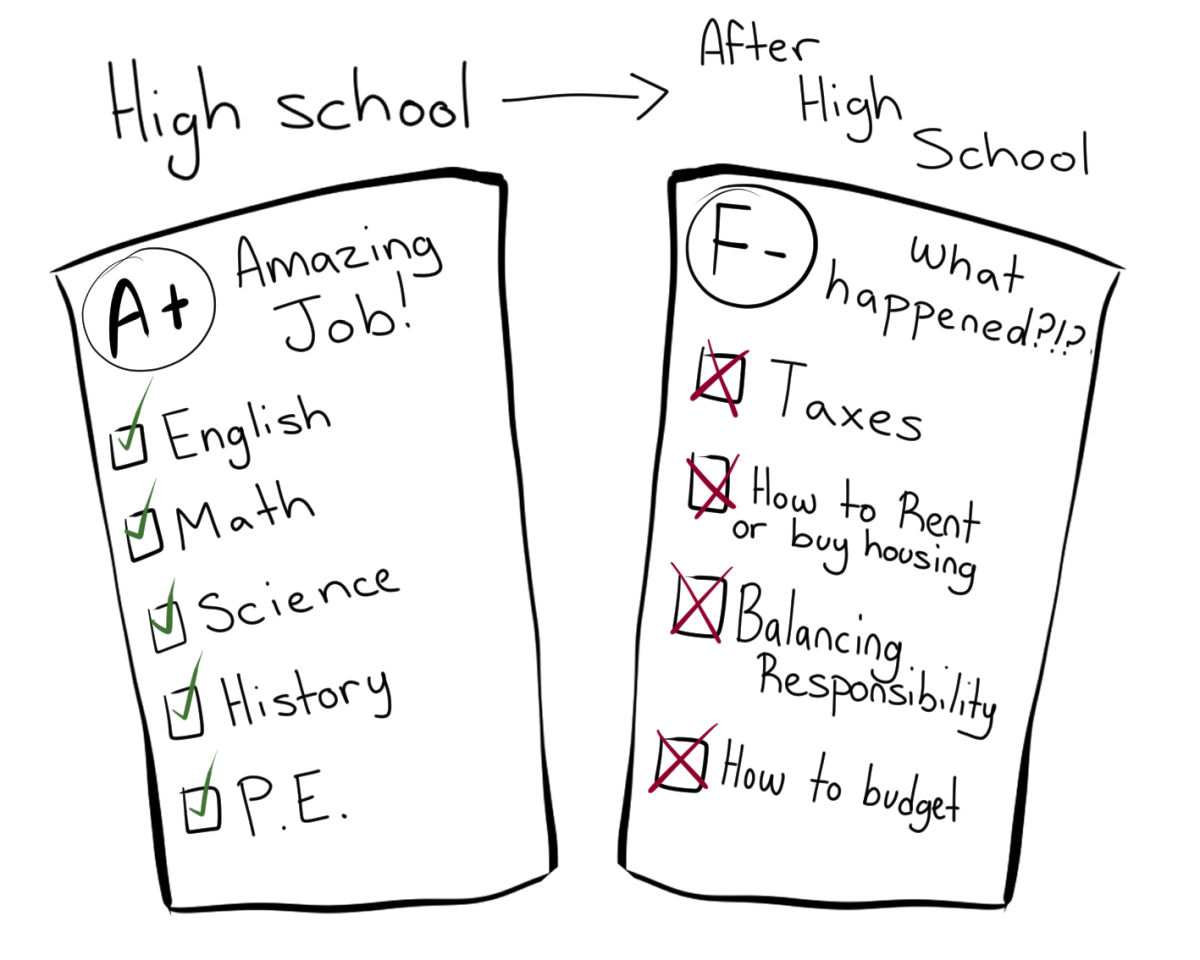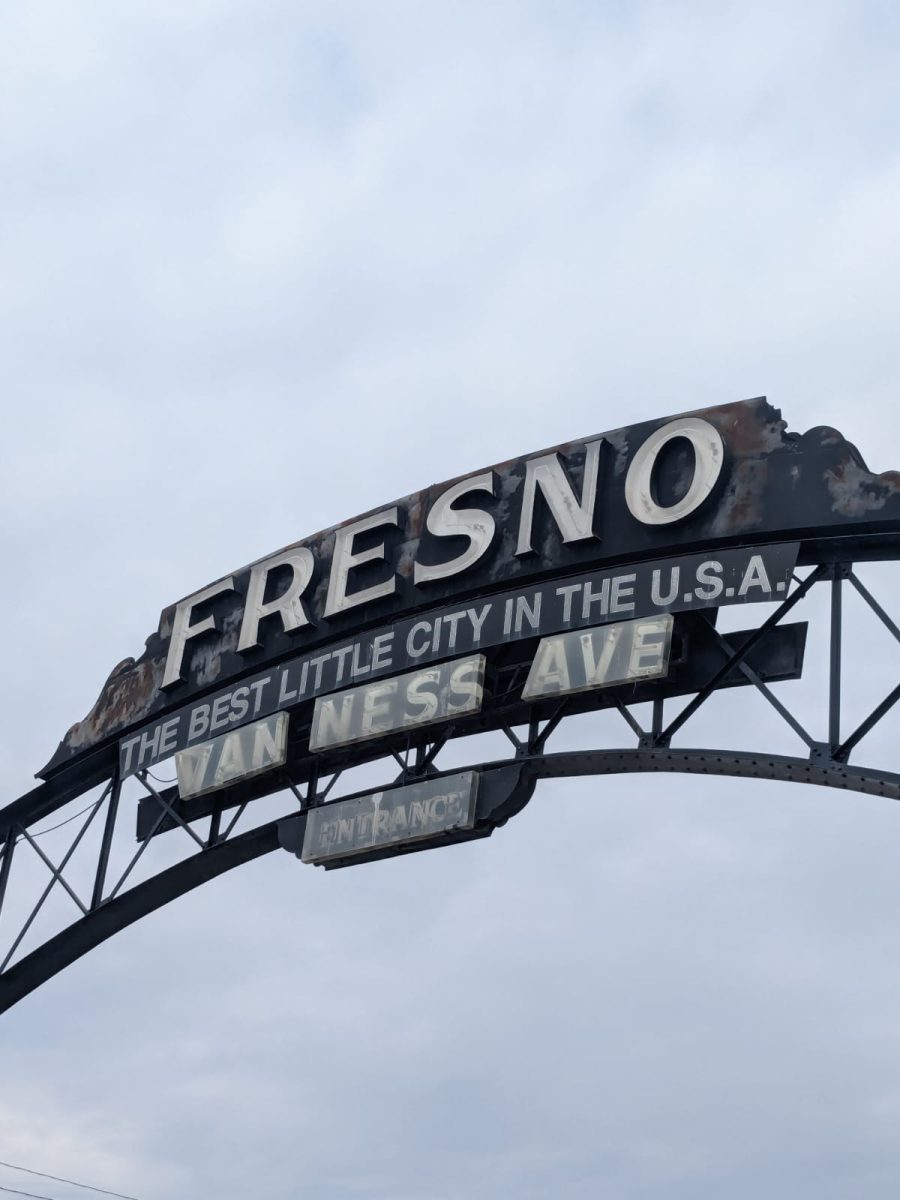On Sept. 28, Senate Bills (SB) 1287 and 1277, and Assembly Bill (AB) 2925 were signed by Governor Gavin Newsom.
SB 1287 requires students on each campus to adhere to time-place-or-manner restrictions, a rule made by the state government that limits how people can gather in public. Students will need permits if a protest contains larger crowds.
It also includes mandatory training programs to educate students on what constitutes violent or discriminatory conduct like antisemitism.
“They will create what seems to be even more of a hostile environment for pro-Palestinian voices,” Joshua Shurley, an adjunct political science instructor at Fresno City College, said.
The context of pro-Palestine protests accused of antisemitism leading up to this bill’s passing could impede on students’ freedom of speech.
“I can’t help but think about the civil service laws in the 1930’s Germany, where you did have a history of the state getting involved in what campuses can and not say, what can be expressed, under the guise of security,” Shurley said.
Lawmakers are trying to change the playing field against protesters. Having protests be known to campuses could allow them to immediately shut it down or deny dissent they do not agree with.
The example of antisemitic discriminatory conduct used to justify the bill was an event at UC Berkeley. Two- hundred protesters broke into an event held by Jewish students.
It fails to mention that the person featured in the event is a former Israeli soldier, with the title of the event being “Israel at War: Combat the Lies.”
Criticizing Israel is not the same as antisemitism. Being anti-Zionist is aligned with being against Israel taking land from Palestine and the colonist viewpoints of Zionist political ideology. Antisemitism is discrimination and hatred for someone’s Jewish faith or heritage.
SB 1277 establishes statewide professional development for schools about Holocaust and genocide education including the Rwandan, Bosnian or Armenian genocides.
This would be overseen by the California Teachers Collaborative on Holocaust and Genocide Education which is partnered with several pro-Israel organizations including JPA and Jewish Family and Children’s Services.
This bill noticeably misses any talk of the ongoing genocide in Palestine. The bill also aims to “identify and confront antisemitism and hate in modern society.”
Similar to the issues with the argument of SB 1287, it does not identify why people are protesting and labels anything opposing Zionism as antisemitism.
Stan Santos, the co-chair of local advocacy group Raza Against War, said a popular pro-Palestinian phrase “From the River to the Sea” is falsely equivocated to antisemitism and mischaracterized as “calls for the extermination of the Jews of Israel.”
If teachers were to also educate about the genocide in Gaza, it could pose some potential risks as this genocide is not listed in the bill and would not be considered up to curriculum.
“I have a lot of faith in the people that are teaching our children in the public school system that they continue to do their jobs faithfully even though it’s at risk to their professional lives,” Santos said.
AB 2925 wants to require specific anti-discrimination training, for postsecondary education to combat and address discrimination against the five most targeted
groups in the state.
The opposition voices that the bill expands discrimination to include nationality.
The opposition to the bill expresses that discrimination against smaller minority groups that are already marginalized would continue to go unnoticed. They also disagree with the metrics used to determine the most targeted groups.
It may be possible to inflate the number of incidents by passing anti-Zionist actions or criticism of Israel as antisemitic.
“You have an in-group and an out-group. The in-group (Zionist supporters) are protected by the law, but not restrained. The out-group (pro-Palestine) supporters are restrained by the law, but not protected,” Shurley said.
It would be easy to tip the statistics in their favor to justify more bills to hinder pro-Palestinian voices. This can tie to Assembly Bill 3024 about hate littering which involves littering signs or pictures used to intimidate a group.
This would establish civil penalties for hate littering and lower the threshold of it.
The language used in these bills with the supporters behind it, the lack of context for the protesters in SB 1287, and the financial penalty brought on by AB 3024, brings nothing but trouble for Palestinian protesters.
Protesters could be fined for voicing anti-Zionist views and legal barriers make it harder to fight for Palestinian rights.

